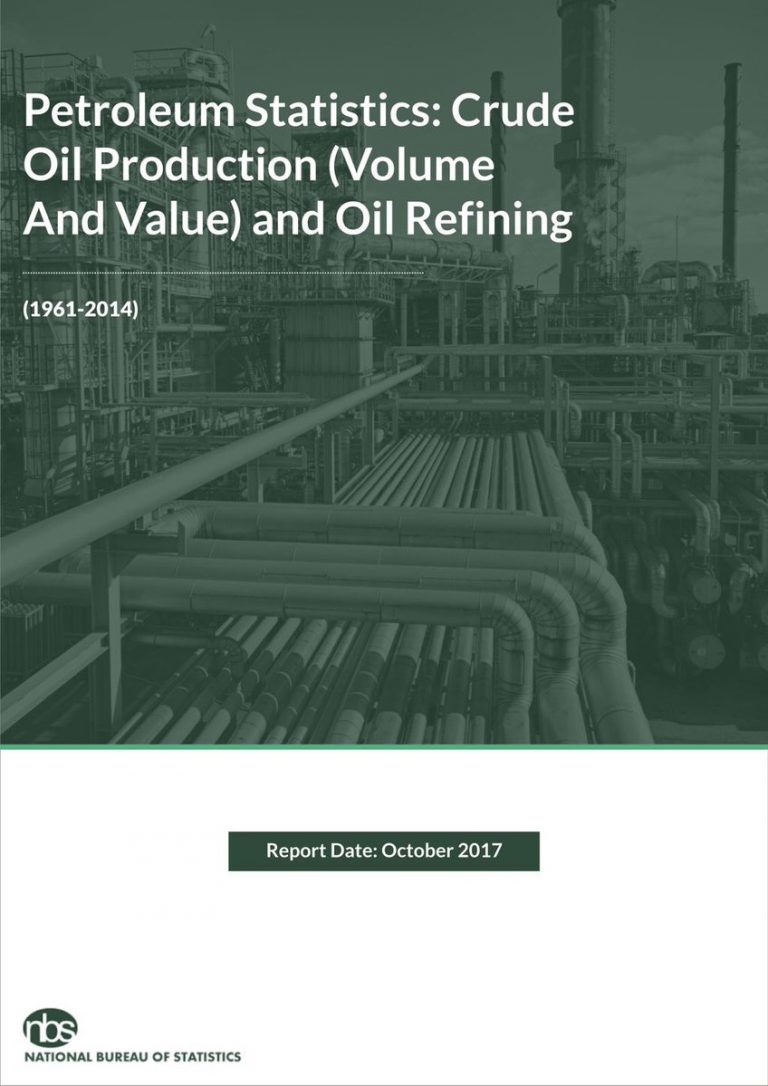• Records Cumulative TSA Inflows Of N1.684tr
Latest data contained in a series of reports by the National Bureau of Statistics (NBS), on Wednesday showed that federally collected revenue from oil stood at N1.95tr between January and July, down by N1.161tr or 37.33% from the N3.111tr total for the period anticipated in the 2017 budget.
According to the report Fiscal Statistics (revenue and Expenditure) for the month of July 2017, a breakdown of the oil earnings showed that crude oil sales accounted for the bulk of revenue.
The nation earned N1.068tr from crude sales, N86.502bn or 8.809% better than the N981.918bn anticipated for the seven-month period in the budget. This has been helped by the twin factors of continued peace in the Niger-Delta region, as well as the sustained rise in the price of crude oil at the international market.
Petroleum Profit Tax and Gas Tax followed, yielding N524.25bn within the period, down by N204.233bn or 28.035% of the anticipated N728.483bn in the budget; with N100.106bn earned in the month of July alone, slightly lower than the N104.069bn anticipated in monthly in the year’s plan.
Royalties from oil and gas fetched N263.311bn, down by N261.584bn or 49.835% from the N524.895bn budget estimate, just as N41.593bn earnings was recorded in the month of July, a significant drop from N74.985bn expected monthly revenue.
Gas sales income between January and July stood at N85.834bn, which was N231.772bn or 72.975% below the N317.606bn budget estimate for the period, out of which only N29.689bn accrued to the account for the month, compared to the N45.372bn expected monthly average.
In percentage terms however, miscellaneous pipeline fees, among others contributed the most, yielding a cumulative N6.813bn, which was N3.397bn or 99.444% better than the N3.416bn anticipated for the seven-month period. In July alone, it pooled N2.669bn, far above the N488m projected monthly average.
“Rent” performed least, attracting just N104m, down by 89.388% from the expected N980m in seven months.
The NBS put total federally collected oil revenue for the month of July at N362.434bn, which was a drop from the N444.537bn expected monthly budget average.
Another NBS report published also on Wednesday also showed that in the 15 years between 2000 and 2014, Nigeria has produced in excess of 700m barrels of crude annually, with 2014 being the lowest at 748.072m at an average price that year of N16,101.53 per barrel, followed by 740.687m in 2002; while at its peak in 2005, Nigeria’s output stood at 918.66m barrels of oil, higher than the preceding year’s 910.156m barrels.
In terms of value of production has earned over N10tr yearly between 2009 and 2014, with the highest being N14.7tr in 2012; followed by prior year’s N14.322tr; before dropping to N13.331tr in 2013 and then N12.045tr the following year.
On petroleum statistics, the report also showed that crude oil production has being on a steady decline since 1997, when the nation’s refineries in Warri, Port Harcourt and kaduna, received a total of 80.473m barrels of crude, out of which it processed 78m barrels, translating to capacity utilization of 140.8%.
By 2014, the report showed that the refineries got 25.839m barrels and processed 23.36m, with capacity utilization down to 44.42%, while year-on-year, growth crude oil refining was at -33.7%.
Meanwhile, the Federal Government’s Transaction Single Account (TSA) with the Central Bank of Nigeria (CBN) pooled a total inflow of N1.684tr cumulatively between January and July 2017, while total outflow for the seven months stood at N1.477tr, leaving a net surplus of N206.388bn. In the month of July, total TSA inflow stood at N375.915bn, compared to an outflow of N291.883bn and surplus inflow of N84.032bn for the period.







